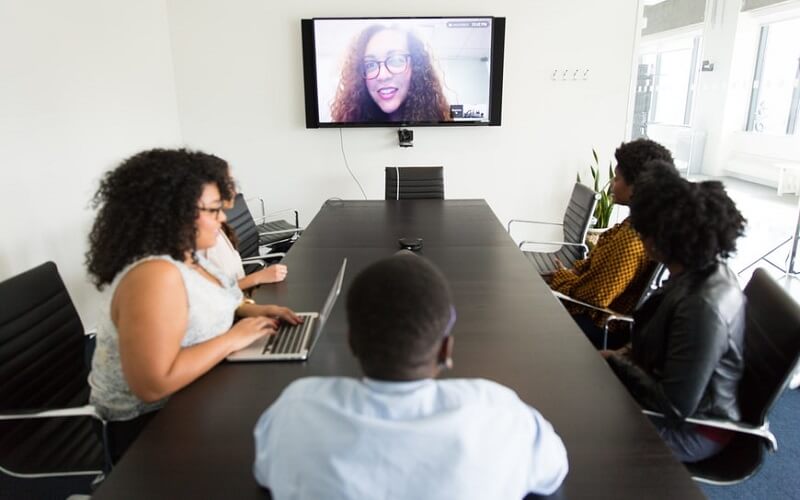The latest studies and research tell us that remote meetings are the worst managed least participatory meetings and those in which the concentration of the attendees is lost faster and faster. In addition, they are ranked among the most inefficient. Does it look familiar to you? And you will think, well, if now we spend the whole day from videoconference to videoconference.

1. Let’s Not Invite Extra People
It is proven that not being invited to a meeting is one of the things that usually annoy us the most. It is normal that it may seem harsh to us, but if we think about it, how many meetings have we been called to and that, when we connect, we automatically think, this is not for me? In how many meetings would we have been grateful to be invited to only part of it? We must change our mentality and think about respecting the time of our colleagues so that they do it with ours. I like to say that we should have each other’s backs.
Since remote meetings Klaxoon can be recorded and, this is best, played back faster, up to twice as fast, let’s keep them in the loop by sending them the recording.
2. Let’s Prepare An Agenda
Why don’t we prepare an agenda with the questions to be answered? It will help us focus the meeting and allow us to know better who needs to be present. Naturally, they should be the people relevant to the questions.
And how best will we know if the purpose of the meeting has been achieved? Well, see if we were able to answer the questions we had asked ourselves.
If the meeting is going to have participants from several countries, let’s take into account the time differences and, if possible, the social customs of those countries, such as holidays, days off, etc.
3. Mute Our Microphone When We Don’t Speak
By silencing ourselves, we avoid annoying noises and contribute to the clarity of the message that is being spoken at that moment.
In many video collaboration platforms, it is already common to use the space bar to open the microphone and, pressing it, send our messages. We can ask the participants to test how to silence themselves, asking them to identify themselves the first times they participate in the meeting, thus helping us to gain confidence with the collaborative tool, and above all, we create presence: we are here. But we must also be aware that silence is not the same as agreeing with what others say. It can be very convenient to use real-time polling or voting features or applications to validate points.
4. Encourage Camera Use
We want attendees to be fully involved, active, and participatory and not multitasking: answering email, surfing the web, etc. Activating the video will greatly improve communication and avoid misunderstandings. Letting ourselves be seen and thanks to non-verbal language, we will greatly increase the probability of holding an effective meeting.
5. Use Collaborative Tools
During meetings, it is important to use the collaborative and technological tools that we have. This encourages greater participation and stimulates the exchange of ideas. Some of these tools are:
- Chat: Participants can report any incident or even send files
- Blackboards: We encourage brainstorming and ideation.
- Surveys: What better way to keep the attention and validate the points discussed.
6. Good Practices
There is a whole series of good practices that will help us to make the meeting work. Some, like muting the microphone, we have already discussed, but there are many more.
If there is no video, saying our name when starting to speak is convenient, not everyone has to know us before or know our voice; test that everything works and try to connect a few minutes beforehand in case there is an issue to be resolved; be punctual; if several participants are in the same room, try to avoid getting into group conversations; do not capitalize on the meeting, do not repeat the same thing several times, avoid monologues, etc. And, above all, be polite, don’t step on someone else’s word, listen and let them speak.

I am Tristan who loves to ride and spend time with my jenny (horse) and my love Mark. After completing my graduation, I have been working as an accountant in a private firm in Cologne.
Leave a Reply